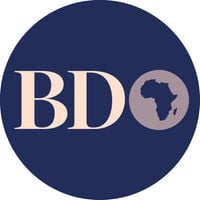
A pedestrian walk past the National Treasury building in Nairobi on June 12, 2014. FILE PHOTO | NMG
Summary
- The World Bank had estimated that Kenya could save Sh55.9 billion from China between January and June under the DSSI deal in principal and interest payment freeze.
- But China announced that Kenya would be granted a Sh26 billion ($245 million) relief.
- A parliamentary disclosure indicated a portion of the relief came from the SGR financier, China Exim bank.
Kenya has withdrawn its request for China to extend debt repayment holiday to December in the wake of opposition from Chinese lenders that recently froze disbursements to local projects.
The Treasury says that Kenya has decided not to seek an extension of the debt relief beyond June, adding that the country is fully paying Exim Bank of China—which funded the construction of the standard gauge railway (SGR).
Chinese lenders, especially Exim Bank, were uncomfortable with Kenya’s push for extension of the debt service suspension with rich nations, prompting delays in disbursements to projects funded by Chinese financiers.
The Chinese embassy in Nairobi acknowledged the funding hitch, adding that the matter was being addressed by officials of the two countries.
Now, Nairobi is dropping its push for the debt repayment holiday extension by China for fear of straining relations with Kenya’s biggest foreign creditor.
"There is no request to the Chinese government for an extension of the moratorium on debt. Kenya is servicing its debts with the Exim Bank in line with the DSSI agreement," Treasury Principal Secretary Julius Muia told the Business Daily.
Central Bank of Kenya (CBK) data shows that foreign exchange reserves dropped by Sh35.2 billion between July 15 and July 21. The banking regulator did not offer reasons behind the fall. But World Bank data show the only major debt repayment for Kenya in July was for loans linked to SGR—signalling payment of Chinese loans.
Chinese-funded projects faced a cash crunch in June, with contractors reporting delayed payments from banks like Exim Bank of China.
Executives at State-owned firms said in July the projects risked delays due to the funding hitch.
"Payment to contractors working on Chinese projects and paid under direct method have delayed since last month [June]. We are told Chinese banks are not settling invoice because of the moratorium," said a CEO of a State corporation who spoke on condition of anonymity.
The direct method involves Kenyan firms with Chinese loans sending notices for supplier payments to Chinese banks through the Treasury.
The terms of China's loan deals with developing countries are unusually secretive and require borrowers to prioritise repayment of Chinese state-owned banks ahead of other creditors. A cache of such contracts was revealed in an earlier report by Reuters.
The dataset -- compiled over three years by AidData, a US research lab at the College of William & Mary -- comprises 100 Chinese loan contracts with 24 low- and middle-income countries, a number of which are struggling under mounting debt burden amid the economic fallout from the Covid-19 pandemic.
It uncovered several unusual features, including confidentiality clauses that prevent borrowers from revealing the terms of the loans, informal collateral arrangements that benefit Chinese lenders over other creditors and promises to keep the debt out of collective restructurings -- dubbed by the authors as "no Paris Club" clauses, the report said.
The Paris Club is a group of officials from major creditor countries whose role is to find solutions to the payment difficulties experienced by debtor countries. China is not among the 22 countries who are members of the club.
Beijing is one of Kenya’s biggest foreign creditors, having lent Sh758 billion as at April 2021 to build rail lines, roads and other infrastructure projects in the past decade.
In January, China and other rich countries under the Debt Service Suspension Initiative (DSSI) gave Kenya a six-months debt repayments relief.
The impact of the Covid-19 pandemic has battered Kenya’s tax revenue collection at a time when more of its debts are falling due and continues to grapple with gaping fiscal deficits.
The G20 countries, including Belgium, Canada, Denmark, France Germany, Italy, Japan, Republic of Korea, Spain and the USA, rescheduled payments of Sh32.9 billion in principal and interest due between January and June to the next four years with a one-year grace period.
The International Monetary Fund (IMF) has disclosed that Kenya had sought an extension of the debt relief from G20 countries to December, saving an additional Sh39 billion ($361 million).
While China is a G20 member and a signatory to the deal, a large proportion of its loans to Kenya has been made on a commercial basis by government agencies, quasi-public corporations and by state-owned banks, such as China Development Bank and Exim Bank of China.
China has sought to negotiate its debt relief deals separately, but applying the same terms as the G20 countries while reserving the right on size and which loans will attract the moratorium.
The World Bank had estimated that Kenya could save Sh55.9 billion from China between January and June under the DSSI deal in principal and interest payment freeze.
But China announced that Kenya would be granted a Sh26 billion ($245 million) relief.
A parliamentary disclosure indicated a portion of the relief came from the SGR financier, China Exim bank.
President Uhuru Kenyatta’s administration has largely taken loans from China since 2014 to build roads, bridges, power plants and the SGR.
This started after Kenya became a lower-middle income economy, locking her out of highly concessional loans from development lenders such as the World Bank.




No comments:
Post a Comment